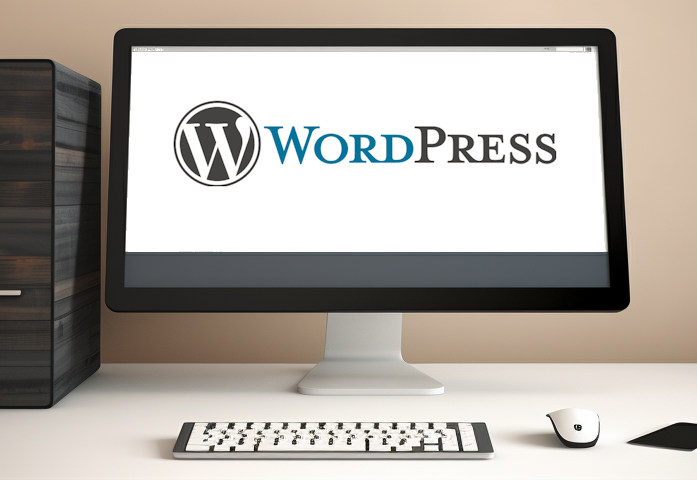

WordPress is a massively popular and very often used open-source template content management system (CMS),
website building platform and (originally) blogging software. It was first released way back
in 2003 and has is now one of the most dominant CMS platforms on the entire internet due to its
relative ease of use and the fact that it is essentially free to implement.
If you are a blogger hoping to try and share your thoughts with people from around the world, a
small business owner wanting to establish a new or changed online presence or even a developer working
and building custom web applications and websites, WordPress is a platform which may be able to help you.
Wordpress blogs have now been expanded into more functionable websites like those with mailing
lists, Internet forum and sometimes media galleries, membership sites. Even learning management
systems and online stores can be managed with a blog. Woocommerce can help with ecommerce requirements.
WordPress is primarily used and known as a CMS, which means it provides a user-friendly interface for creating, editing, organizing and publishing digital content including as text, images, videos and other types of media on a website. In many cases it is the ability for the user to edit the pages with a dashboard without coding which makes it very useful.
WordPress is open-source software, which means it\'s free to use and can be modified by developers if they need to, to suit the needs of a client or their own requirements. This open code nature has led to a large community of software developers/programmers, designers and users contributing to its development in terms of creating plugins and themes to extend its already substantial internal functionality. There are thousands of themes available.
WordPress offers a wide range of pre-designed themes (sometimes known as templates) which allow users to change the look, feel and layout of their websites without requiring extensive coding skills or technical knowledge. Users can also create custom themes by themselves or hire a designer to do it for them.
WordPress has a large library of plugins which extend its base level functionality with a variety of rich features. The plugins can be used to add features to a website like e-commerce, SEO, customer contact forms and social media integration.
WordPress originally started out as blogging software for people wanting online diaries and the like. It\'s still used for this purpose very often, although people tend to expand it into more than a blog. Its blogging capabilities make it easy for individuals and organizations to create and manage blogs and their content.
WordPress is highly customizable right out of the box. Users can modify the code (not always wise) and design (sometimes) to create unique websites tailored to their specific needs in the business. This makes it suitable for various kinds of websites from the basic personal blogs to functional e-commerce stores and even large corporate websites.
There is a large and very active community of current users, systems developers, and other contributors online. The community provides friendly and great support through forums, documentation, tutorials, videos and a wide spread ecosystem of resources including youtube.
WordPress takes security very seriously and regularly releases updates to patch known vulnerabilities as they arise. Users are encouraged to keep their WordPress installations, themes, and plugins up to date to maintain the security of their websites - although this can be difficult in some cases due to the number of plugins and how long they have been installed for.
WordPress is available in lots of languages and has features which make it possible to create multilingual websites if that is required covering multiple language speaking markets.
While WordPress is often used for small to medium-sized websites, it can also scale to handle larger websites and complex web applications with proper optimization and server resources. It should be noted that other options may be available which are specifically written for certain purposes.

A blog, which stands for 'weblog', is a particular kind of internet website or online software application/platform where an individual, group or organization regularly (or as appropriate) publishes text and image content in an initially chronological order although there are probably ways of changing the sort order now. Content called 'posts' or sometimes pages, will often appear in reverse chronological order with the most recent post displayed at the top of the blog's main entry page depending on the template. Blogs can cover a wide range of topics and purposes and they often serve as a means of expressing opinions, sharing information and engaging with an online audience, although engagement can be disabled if the user feels it is not required to communicate backwards and forwards with readers.

Yes - Wordpress is 100% free. However, there are costs associated with implementing and running it.
If you choose to put the wordpress blog on your own domain name, then you will have to pay a yearly fee for the domain name.
If you choose to host the blog on a rented hosting service, then you will have to pay the hosting company a monthly or yearly fee.
You can start a blog for 100% free though on wordpress.com
The cost of hosting is so cheap these days that in our view its ok to go with a hosting company at say £5 a month. Give or take.
the reasoning is that you might get more flexibility when it comes to upgrading and generally you will be using your own domain name which is thought of as more
professional.

We have established that WordPress is indeed a popular content management system (CMS) and website-building platform and there are numerous advantages, but it also has disadvantages - note that some of these advantages and disadvantages will be debateable by certain people with different experiences and the list below is not something which we agree with completely - but in general terms it can be used as a rough guide, but do not take it as any kind of advice - reading this means you agree that you do so and take any action based entirely at your own risk.
Advantages of WordPress:
User-Friendly WordPress is known worldwide for its user-friendly dashboard interface which makes it accessible to users with varying levels of technical expertise - literally from 1 out of 10 upwards! You don't really need expert computer coding or development skill to create and look after a WordPress website - although in the view of some, it is better to have some knowledge of hosting or wordpress management.
Wide Range of Themes WordPress offers a library of free and premium (paid) themes which allow you to change the look and layout and feel of your website with relative ease - in theory. This could help you create a visually appealing site without extensive design knowledge as the theme designs are often very appealing.
Plugin Ecosystem The extensive plugin ecosystem allows you to add style and functionality to your website quickly. There are a huge number and variety of plugins around the net which cater for various functionality requirements, tools and such for SEO (search engine optimisation), online selling with payments processing, email us type contact forms and social media sharing - which can sometimes be quite difficult technically. The ecosystem can be searched by users looking for specific tasks.
SEO-Friendly WordPress is sometimes said to be inherently SEO-friendly, with features like customizable permalinks, easy metadata management, and the ability to install SEO plugins like Yoast SEO to optimize your site's search engine visibility. SEO itself is a skill which goes far beyond what any CMS out of the box can do - and care should be taken to consider external SEO factors.
Content Management It excels at managing content of a more simplistic type, whether for blogs, static websites or e-commerce shops and payments. You can organize content into categories and custom post types, making it easy to maintain a structured website which is easy for visitors to navigate.
Scalability WordPress can be used for small personal and hobby type blogs and scaled up to larger enterprise websites with proper hosting resources.
Cost-Effective WordPress itself is free, and many wordpress themes and plugins are also free or reasonably priced, making it cost-effective for individuals and small businesses. Additionally, if the owner wants to make updates to the content, if they learn how to use the admin side of the installation, then can make their own updates by adding posts, pages and media - or amending / deleting existing articles in posts and pages.
Disadvantages of WordPress:
Maintenance WordPress requires regular updates for security and functionality. Failing to update the core, themes, and plugins can sometimes lead to security vulnerabilities.
Security Risks Because of its popularity, WordPress is sometimes thought to be a common target for hackers. Having said this, many security issues can be mitigated with proper security practices and the use of security plugins. There are also many security companies who can help with any issues which could arise.
Performance Out-of-the-box, WordPress can be resource-intensive depending on how busy your website gets and may require caching and optimization to help ensure fast loading times.
Customization Complexity: While WordPress is customizable, very extensive customizations may require coding and or CSS skills. Deeper modifications to themes or functionality can be challenging for beginners and sometimes even some developers who are not familiar with the way that wordpress operates can find it puzzling.
Plugin Compatibility Not all plugins are well-maintained or compatible with each other, this can lead to conflicts and issues on your website which may need a wordpress familiar developer to sort out for you.
Learning Curve for Advanced Features While basic usage is straightforward through the interface, mastering advanced features and customization options may take time and effort, changes later can be tricky so its best to practice first to get the hang of how it works.
Dependency on Third Parties When using themes and wordpress plugins, you are often dependent on third-party developers for updates and support. The same can be said though for many different platforms and custom written websites - there is nothing wrong with using the help of technical people.
WordPress is known to be a versatile and powerful platform which offers numerous advantages for website creation and management, but it also comes with some challenges, particularly in terms of security, maintenance, and customization complexity - how difficult these are may depend though on your skill level. Your choice of CMS should align with your specific needs, technical skills, and the type of website you want to build.
We hope this helps!